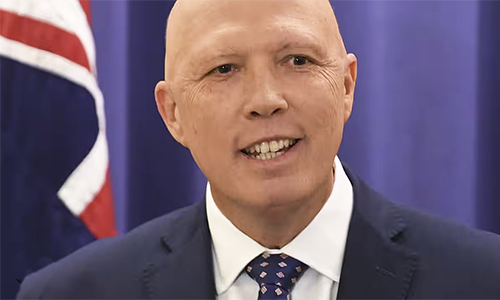
by ROGER CROOK – I AM an 85-year-old Australian agriculturalist and a nationalist; I live in Albany, a remote town on the far south coast of Western Australia.
We are remote because we are 450km from our capital city, Perth; Albany, a city of about 39,000 people wants for little.
- We have lost our national ambition and energy — it was driven out of us.
- I await the inevitable demonstrations against Australia Day.
- And I weep for what could have been.
Nationalism: n1. national spirit or aspirations. 2. devotion to the interests of one’s own nation. 3. Desire for national advancement and independence. 4. The policy of asserting the interests of a nation, viewed as separate from the interests of other nations. 5. Extreme, fanatical devotion to one’s own nation. nationalist n. adj – nationalistic, adj.
The climate is Mediterranean; the best seasons are spring and autumn when the southerly and easterly busters calm down.
I have lived in Australia for 60 of my 85 years, most of it in WA. I have not visited the land of my birth for more than 20 years and I see no reason to do so in the future; there is too much still to do in Australia and the challenge grows every day — the tasks are of national importance.
PINK
When I was a boy the British Empire was marked pink on the map of the world; every British boy knew that the sun never set on the British Empire and he was proud of it.
The radio and newspapers were our main source of news; supplemented, occasionally, with a trip to the cinema to be astonished by British Pathe News, with their news from around the world.
What Pathe showed had been filmed, processed and transported to Britain, sometimes over weeks; often, what we saw we already had read about in the press, it was old news brought to life in a darkened theatre on a big silver screen.
We had to wait until about 1950 for a television with a nine-inch screen and black and white pictures.
These days at 5am every morning with a large mug of tea, a biscuit and Boris our Jack Russell, I sit in my armchair in front of a big LED ultra-high definition television and as if by magic and within an hour or two, I am up-to-date with what is going on in all four corners of this world; the 10 o’clock news from the UK; any number of stations in America from Fox to CNN and Al Jazeera inform and educate me.
I watch disasters and battles as they happen. If something of interest is happening in Canada or India or wherever, I can go there at the press of a button.
If I want, I can see the same news on my phone, which is always in my pocket. What a wonderful world we live in.
SILENT
I have decided it is time to speak up for my generation, aptly named the Silent Generation and what we have tried to do for Australia.
Between 1914 and 1945 Australia was decimated by two world wars, pestilence (Spanish flu) and the Great Depression, yet it emerged uncowering, even fearless.
- 1914-18 WWI: 331,781 Australian men between the ages of 18 and 44 enlisted, which was nearly 40 per cent of the eligible male population; 215,585 were casualties which was 64.98 per cent of those who enlisted; 61,720 died.
- 1919: Forty per cent of the Australian population caught Spanish Flu and between 12,000 and15,000 died.
- 1929: The Wall Street crash led to a worldwide economic depression. The Australian economy collapsed and unemployment reached a peak of 32 per cent in 1932. Soup kitchens were a common sight as many went hungry.
- 1939-1945 WWII: Australia lost 34,000 service personnel during World War II. Total battle casualties were 72,814. More than 31,000 Australians became prisoners-of-war. Of these more than 22,000 were captured by the Japanese; by August 1945 over one third of them had died in the appalling conditions of the prisoner-of-war camps. (ABS)
In the mid 1960s we not only had a world class Royal Australian Navy, with at least one aircraft carrier; there was a multi-generational national ambition for Australia, which was staggering in its intensity; those in their fifties and sixties who had lived through it all were leading this nation from the front.
After WWII many people from many places came to this land and that union of nations caused a hybrid vigour of intent in all we set out to achieve; we all knew what Australia could be — we shared a common objective, even a vision for this land.
We knew we had the potential and the capacity to be a totally self-sufficient nation, not only in what we ate, but every part of our lives; there was nothing we couldn’t do; there was nothing we could not be.
Australia had laid the foundations for its future when it was a remote British outpost far from everywhere and anywhere; none more remote than Western Australia, which was remote from the remote.
WA was close to being self-sufficient in the 1960s, because the years from 1829 had been challenging.
In 1829 Robert Stephenson was given a licence in the UK to run a steam train from Liverpool to Manchester.
BUILT
In its first hundred years from 1829-1929, the people of Western Australia built a rail network that would have covered all of the UK and much of Europe.
That rail network serviced a population that grew from 1003 in 1829 to 405,873 in 1929, that was in spite of the destruction of so many young men in the war to end all wars.
In 1929 WA farmers had three million acres under crop production and more than eight million sheep and 850,000 cattle grazed pastures and the vast outback in a State ten times the size of the UK.
In the 1960s, increasingly endowed with natural resources which kept on revealing themselves and as we cleared a million acres a year for agriculture and with advances in sea and air travel, WA’s historical disadvantage of being so far from Europe disappeared as we found ourselves close to the ever expanding millions in Asia and the tens of millions in Indonesia; Western Australia was emerging as the perfect pearl in the Australian oyster of progress and nationhood.
Then, around the turn of the century, maybe a little earlier, we lost our national ambition and energy — it was driven out of us; life became a series of politically driven ideological battles, battles, which twenty years later have left our younger generations, the Millennials and the Gen Xs bereft of ambition, lost in financial mires which they didn’t cause and from which there is seemingly, no escape.
The politics of division, the lust for power and the determination of career politicians of all persuasions to get their way at any cost and with any promise, has replaced the vision we had for this country sixty years ago.
MENZIES
The visions we shared with men like the premier of WA, David Brand, Henry Bolte of Victoria and Askin of NSW and of course Robert Menzies and some of his Labor colleagues and many more exceptional men and women, who all shared a vision for this post-war country — those visions have now gone now.
As I wait for the inevitable demonstrations against Australia Day, I weep for what could have been; somewhere the better life we sought for this nation was turned into an easier life by a succession of leaders who, like the Pied Piper of Hamelin, were easily followed.
Sadly, the result for Australia is the same as it was for the children of Hamelin; we have failed to imbue in our children that which had driven us.
And, so it appears, they are now lost.PC













I share your concerns Roger and much of your history – although a few years younger. What we have suffered from in recent decades is a total lack of centre-right political leadership and commitment. Our country has become totally stuffed by extreme-left socialists and Marxists within the Greens and ALP. Then we’ve got climate change morons like Chris Bowen and the Teals dragging us down the path to self-created economic disaster. And then there are the hundreds of migrants who have been allowed to enter into this country and bring with them their anger and hostility. Finally, there are similarly angry and disengaged indigenous activists who want to ruin what has been achieved by the rest of us and our forebears. It’s a very sad state of affairs.